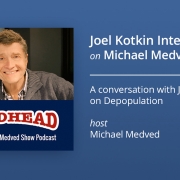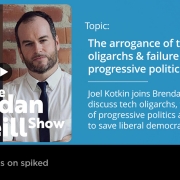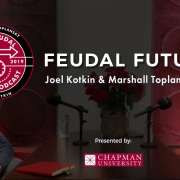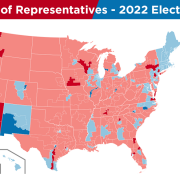America’s First Infantada
We are here to guide public opinion, not to discuss it.
Emperor Napoleon Bonaparte, 1804
By the calendar, the American republic is mature, but it’s becoming rapidly ever more infantilized. In everything from schooling to Covid-19 to race and global warming, we seem to be looking for simple, easy answers that a toddler might appreciate but healthy adults know are too pat to be true. Every issue is cast in stark Manichean terms—reckless Covid denier or hygienic fascist, racist versus anti-racist, climate hero or eco-criminal, enlightened about “gender fluidity” or hopelessly transphobic.
The national consciousness regresses to the level of the toddler, casting everything in stark terms of good and bad.
This infantilization extends across the political spectrum. The elevation of the QAnon-inspired Representative Marjorie Taylor Greene from Georgia, like that of the left’s favorite, Alexandria Ocasio-Cortez, confirms our descent into puerile politics. Biden, with his whirring money printer, may be clumsily speeding us towards a permanent state of infancy—substitute guaranteed income for the bottle—but he has risen after a president whose knowledge of the world was drawn from cable television. We cannot go back to the likes of a man who sincerely imagined his vice president would throw a presidential election into reverse.
How We Got Here
Media outlets, both on the dominant mainstream left and the less powerful but feisty right, seem most concerned with whipping their audiences into an emotional frenzy. Increasingly, as former New York magazine columnist Andrew Sullivan puts it, “the narrative replaces the news.”
The consolidation of cultural control in increasingly fewer hands helps push this process. Companies like Facebook, Apple, Microsoft, Google, and Amazon control information in ways undreamed of by the Medieval church. They increasingly use their power to constrain debate, relegating to the digital gulag anyone who violates the received wisdom on issues such as climate, the pandemic, and race.
Censorship is getting a fresh flush in post-Trump America. Mainstream journalists such as the New York Times technology columnist Kevin Roose demand the appointment of a federal “reality” czar to help Silicon Valley de-platform those who do not subscribe to the progressive dogma. The education system increasingly seeks, notes British author Austin Williams, “to promote” a particular set of beliefs rather than “to teach.” Academia has adopted the notion of “repressive tolerance” developed by the German philosopher Herbert Marcuse, who saw in liberal traditions of free speech a form of oppression, asserting “liberty” was employed as a “powerful instrument of domination.”
The putatively democratic progressive left rejects traditional populism, preferring top-down control via rich non-profit organizations and foundations. Both the corporatists and the neo-socialists fear anything that smacks of populism, as Thomas Frank notes in the Guardian, regarding populists as “racist authoritarians” who “ignore the authority of the learned.”
To be sure, the complex problems facing our society—climate change, mass migration, or the effects of technology, for example—may often seem beyond the competency of elected representatives, particularly as more of them in both parties seem little better than partisan hacks. But as Aldous Huxley observed, scientists and other experts do not own a monopoly on either virtue or political wisdom. In many cases, they seem to have fostered the very problems they now seek to order us about to “solve”.
Pandemic and the Ideology of Apocalypse
The social, economic, and human horror brought on by the Covid-19 pandemic midwifed our first Infantada. Health crises have a tendency to make us more dependent on doctors and caregivers, but the pandemic has raised the stakes for social control, as unelected experts, or those expected to be experts, freely issued arbitrary proclamations to the masses.
Trump’s incongruous digressions amid the crisis certainly made the expert class, and the most extreme lockdown advocates, sound more rational and authoritative. To be sure, many precautions—such as isolating the vulnerable—make sense, but the crisis has also accentuated a trend for the state to adopt trends, like bans on outside activities, that may have dubious medical value. In truly lunatic locales, like Oregon, the pandemic may never end, as the state now wants to impose mask mandates on a permanent bases. For some, the mask is like a progressive hijab, proof of one’s righteousness rather than a sensible, but temporary health measure.
Read the rest of this piece at American Mind.
Joel Kotkin is the author of The Coming of Neo-Feudalism: A Warning to the Global Middle Class. He is the Presidential Fellow in Urban Futures at Chapman University and Executive Director for Urban Reform Institute. Learn more at joelkotkin.com and follow him on Twitter @joelkotkin.
Homepage illustration: Laxman Deep via Pixabay









